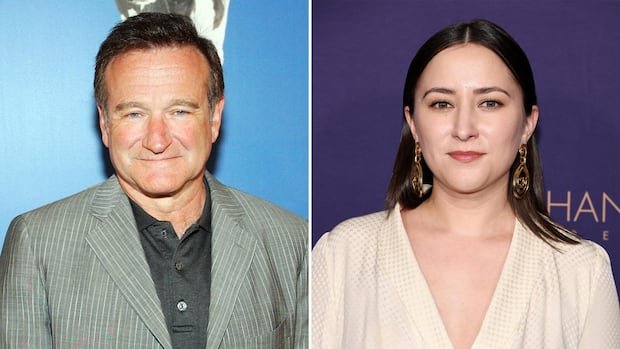Zelda Williams, known for her work in acting and directing and the daughter of the late Robin Williams, recently expressed her frustration on Instagram regarding what she described as “disgusting” AI recreations of her father. In a now-expired Instagram story, she made a plea for people to stop sending her AI-generated videos of her dad, emphasizing that she does not want to see them and does not find them understandable or acceptable.
The renowned actor Robin Williams passed away in 2014, and Zelda highlighted that the trend of AI recreations reducing real people’s legacies to mere resemblances for the sake of creating content is both offensive and disrespectful. She criticized the practice, stating that it diminishes the true essence of individuals and their contributions to art and music, turning them into mere entertainment for others’ consumption.
Zelda’s recent statements echo her previous concerns raised in 2023 when the American acting union, SAG-AFTRA, brought attention to the impact of AI in the entertainment industry. She denounced the AI recreations of her father as personally disturbing and a violation of artistic integrity that extends beyond her own feelings on the matter.
The debate surrounding the use of AI in creating digital replicas of real individuals has been ongoing for years, gaining prominence with incidents like the deepfake video featuring former U.S. President Barack Obama in 2018 and the digitally resurrected James Dean in a 2019 film. The rise of generative AI technologies, particularly with the advent of ChatGPT in 2022, has raised existential questions across various arts sectors.
As AI tools increasingly influence the entertainment landscape, discussions between industry unions and studios have intensified. Concerns over the ethical implications of AI-generated content have led to controversies like the introduction of the AI “actress” Tilly Norwood, sparking debates on the importance of preserving human creativity in artistic expressions.
Moreover, the emergence of publicly accessible generative AI programs has enabled individuals to create AI-generated content, leading to a surge in videos produced using such technologies. Recent developments, like OpenAI’s Sora 2 text-to-video AI model, have raised copyright concerns as users explore the capabilities of these advanced AI systems.
In response to the growing concerns, efforts are being made to address copyright issues associated with AI-generated content. Companies like OpenAI are working to provide more control over the use of copyrighted materials, while industry players like Disney and Universal are taking legal actions against AI platforms for alleged copyright infringement.
The ongoing debate on the ethical and creative implications of AI in the entertainment industry continues to evolve, with voices from within the industry, including renowned filmmakers like Werner Herzog and Hayao Miyazaki, expressing skepticism and criticism towards AI-generated content, citing concerns about the lack of human emotion and soul in such creations.

